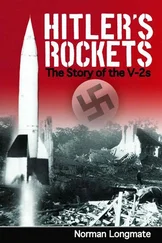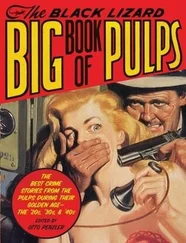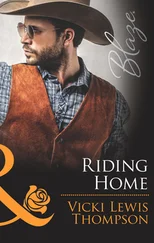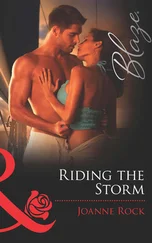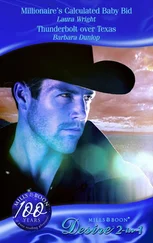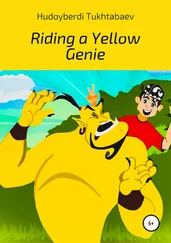Mike Mullane - Riding Rockets
Здесь есть возможность читать онлайн «Mike Mullane - Riding Rockets» весь текст электронной книги совершенно бесплатно (целиком полную версию без сокращений). В некоторых случаях можно слушать аудио, скачать через торрент в формате fb2 и присутствует краткое содержание. Жанр: Старинная литература, на английском языке. Описание произведения, (предисловие) а так же отзывы посетителей доступны на портале библиотеки ЛибКат.
- Название:Riding Rockets
- Автор:
- Жанр:
- Год:неизвестен
- ISBN:нет данных
- Рейтинг книги:3 / 5. Голосов: 2
-
Избранное:Добавить в избранное
- Отзывы:
-
Ваша оценка:
- 60
- 1
- 2
- 3
- 4
- 5
Riding Rockets: краткое содержание, описание и аннотация
Предлагаем к чтению аннотацию, описание, краткое содержание или предисловие (зависит от того, что написал сам автор книги «Riding Rockets»). Если вы не нашли необходимую информацию о книге — напишите в комментариях, мы постараемся отыскать её.
Riding Rockets — читать онлайн бесплатно полную книгу (весь текст) целиком
Ниже представлен текст книги, разбитый по страницам. Система сохранения места последней прочитанной страницы, позволяет с удобством читать онлайн бесплатно книгу «Riding Rockets», без необходимости каждый раз заново искать на чём Вы остановились. Поставьте закладку, и сможете в любой момент перейти на страницу, на которой закончили чтение.
Интервал:
Закладка:
Unfortunately, there was one major impediment to continuing my flying lessons. Money. I had a little saved from summer jobs but flying lessons were expensive. It has been said that necessity is the mother of invention. For teenage boys, necessity is the mother of idiocy. At the time I had a teen friend who had also achieved solo status in his flying lessons and, like me, was struggling to find the funds to continue. We put our heads together and came up with a way to make our money go further. He would rent a plane from one of the Albuquerque airports and fly it to another city field. There, I would meet him and we would fly together, sharing expenses and flying time. There was just one small problem with our plan: It was felonious. As student pilots we could only fly solo or with our instructors. On every flight we would be violating FAA rules. But we quickly concluded that getting caught would be the only crime, and with him flying to a secondary airport to pick me up, we had reduced the chances of discovery.
We decided to see how high we could climb and nursed the Cessna to 13,000 feet, violating yet another FAA requirement that supplemental oxygen be used above 12,000 feet. On another day we wanted to feel the thrill of speed and skimmed just yards above the cholla cactus of the Albuquerque deserts. The spires of the nearby Sandia Mountains were a lure and we weaved through those, all the while buffeted by severe downdrafts.
And on every flight I dreamed of someday flying higher and faster, of doing what Willy Ley had described. I dreamed of feeling the crush of a rocket’s G-forces on my body and of seeing the great globe of Earth behind my ship. I dreamed of the day I would fly a rocket as part of the “Conquest of Space.”
“Mike, at the most fundamental level we’re all motivated by things that occurred in our youth. Tell me about your childhood, your family.” A smiling Dr. McGuire awaited my answer. But I kept the shields up. I said nothing about Washing Machine Charlie or polio or near-death experiences in the wilds of the west or exploding rockets or violating FAA rules. What would those stories have said about Mike Mullane? That I had been emotionally scarred by my dad’s struggle with polio? That I was an out-of-control risk taker? That I scorned rules? There was no way I was going to reveal that history. So I lied.
“I was raised in a Beaver Cleaver family,” I said. “No divorces. No anxieties. No emotional baggage. My dad was an air force flyer and his influence excited me about flight. I was a child of the space race and that exposure excited me about spaceflight. As soon as there were astronauts, I wanted to be one.” End of story.
It was probably the same story he heard from every military flyer. No doubt some of the civilians, unaccustomed to the reality that doctors of any stripe can only hurt your flying career, broke down in tears as they revealed they were breast-fed by their mothers until they were six or were abandoned or beaten or molested or sucked their thumbs or wet their beds. But military flyers knew better. We would have lied about a wooden leg or a glass eye. You find it would have been our attitude. I had a one-in-seven chance of making the astronaut cut. I didn’t want anything to stand out in any report coming out of my medical exams. I wanted to be so normal that when somebody looked up that word in the dictionary, they would see my picture. So I lied. I didn’t mention pissing in radiators or exploding car engines or dodging mountains in a Cessna 150. I lied even when the truth might have helped my cause.
Chapter 5
Selection
On February 1, 1978, the first space shuttle–era astronauts, thirty-five in number, stood on the stage in the auditorium of Building 2 at Johnson Space Center (JSC) to be formally introduced to the world. I was one of them.
The actual press announcement had come two weeks earlier. At that time I had been on temporary duty from my Florida base to Mt. Home AFB, Idaho, testing the new EF-111 aircraft. Like the other 208 people who had gone through the astronaut selection process, I had had an ear tuned to the telephone for several months. Not that I expected to be picked. Far from it. I felt it had been a fluke I had made the interview cut in the first place. In their more studied deliberations the NASA committee would finally realize what they had in Mike Mullane: an above-average type of guy; nothing spectacular; a twelve-hundredand-something SAT guy; a 181st-in-his-West Point-class type of guy; a guy incapable of counting backward by 7s. There was no way I was going to twice fool an organization that had put men on the moon. But, like a lottery player who knows he is going to lose, I was still going to check the numbers.
On Monday morning, January 16, 1978, the numbers came up and I was a loser. I was certain of it. While dressing for work, I turned on the TV. I wasn’t on it. But Sally Ride and five other women were. NASA had announced the newest group of astronauts, including the first women astronauts. There was video of newshounds jostling for position in front of their homes. Vans with brightly colored TV call letters crowded the streets. Curious neighbors circled the houses. And these smiling, radiant, joyful young women answered questions shouted by the press, “What’s it like to know you are one of the first women astronauts? When did you want to be an astronaut? Did you cry when you heard the news? Will you be scared when you ride the shuttle?”
I went to my living room and drew back the curtain to see if there was a squadron of news vans parked in my driveway. Nope. No vans. No frothing press. No neighbors. Nothing. I was alone to dwell on my rejection. I tried to rationalize my loss:
It wasn’t meant to be.
I had given it my best shot.
Maybe I’ll get selected next time.
You never know unless you try.
I sought comfort in these and a hundred other motivational platitudes. But none helped. The winners were on TV. The losers were watching them. I thought of calling my wife, Donna, in Florida and telling her the bad news, but decided it could wait. I just didn’t feel like talking about it.
I drove to my Mt. Home AFB office to find Donna had tried to reach me there. She had left a message, “Mr. Abbey at NASA called this morning and wants you to call him back.” George Abbey was chief of Flight Crew Operations Directorate (FCOD), the NASA JSC division that included the astronaut office. He had chaired the astronaut candidate interview boards. I was certain this would be his “thanks for the effort” call.
I dialed the number and got Abbey’s secretary. After a moment of holding (more proof of rejection) he came on the line. “Mike, are you still interested in coming to JSC as an astronaut?”
In the moments that followed I proved it is possible to live with a stopped heart. Over the previous hour I had built a precise rejection scenario. The women on TV were proof NASA had notified the lucky winners. (Actually, the women had been notified first so there would be thorough news coverage of their novelty.) Now, NASA was just following up with courtesy calls to the rest of us. But George’s lead-in question certainly didn’t sound like a prelude to a rejection.
There wasn’t enough spit in my mouth to wet a stamp but somehow I managed to croak a reply, “Yes, sir. I would definitely be interested in coming to JSC.”
Interested?! What the hell was I saying?! I was interested in having Hugh Hefner’s job. I would kill to be an astronaut.
Abbey continued, “Well, we’d like you to report here in July as a new astronaut candidate.”
I don’t recall anything else from that conversation. I was blind, deaf, and dumb with joy. NASA had selected Mike Mullane as an astronaut.
Читать дальшеИнтервал:
Закладка:
Похожие книги на «Riding Rockets»
Представляем Вашему вниманию похожие книги на «Riding Rockets» списком для выбора. Мы отобрали схожую по названию и смыслу литературу в надежде предоставить читателям больше вариантов отыскать новые, интересные, ещё непрочитанные произведения.
Обсуждение, отзывы о книге «Riding Rockets» и просто собственные мнения читателей. Оставьте ваши комментарии, напишите, что Вы думаете о произведении, его смысле или главных героях. Укажите что конкретно понравилось, а что нет, и почему Вы так считаете.

